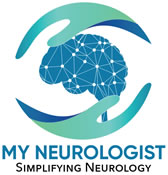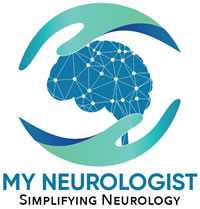What is pre-syncope and syncope?
Syncope is just a fancy word for fainting. The term of pre-syncope is used for the feeling of lightheadedness or fainting without passing out. Both pre-syncope and syncope do not suggest any particular diseases, they are just words for lightheadedness and passing out. Further evaluation is needed to find the cause or type of syncope.
What is vasovagal syncope?
It is the feeling of lightheadedness or passing out from suddenly dropping blood pressure usually triggered by an emotional situation. For example hearing a bad news, seeing blood, or having blood-drawn may cause lightheadedness, and sometimes loss of consciousness. It does not mean any significant disease, except that the patient has a somewhat sensitive autonomic nervous system. No medicine is needed. Patient needs education, reassurance, and avoidance of situations that may trigger it. Other than taking a proper history, no testing is needed either to make a diagnosis. Patient may take appropriate precautions to avoid an episode, such as having blood drawn in a flat position instead of sitting.
What is convulsive syncope?
It is a variant of syncope when the patient passes out and has a brief convulsion. It is like a defense mechanism brain has, when deprived of blood (or oxygen) from low blood pressure, it puts the body into a convulsion. Movements of convulsion push the blood up and brain gets what it wants. It is not epilepsy. Education and common sense measures are advised to avoid situations that may lead to syncope.
What is cardiogenic syncope?
It is syncope caused by a problem in the heart. There are many heart conditions that may cause syncope. For understanding they are divided as follows:
a. Problem with heart’s electrical system.
1. Bradycardia: slow heart rate.
2. Aystole: when conduction is so slow that heart stops beating. A pacemaker can help both bradycardia and asytole.
3. Tachycardia: Heart is beating too fast; it may require a medicine.
4. Abnormal conduction: It is similar to having an abnormal wire in the heart creating short-circuit. Its diagnosis requires a special test called EP study (electrophysiological study). It can be ablated by cauterization.
B: Problem with heart’s plumbing
This is when an artery supplying blood to the heart muscles is blocked, affecting a part of the heart (i.e., angina or heart attack). It may be treated with medicines, a stenting procedure, or a by-pass surgery.
C: Problem with heart’s muscle
Some muscle conditions may affect heart muscle and make it weak resulting in cardiomyopathy. Heart is unable to pump effectively, and patient frequently gets symptoms of lightheadedness, shortness of breath, and dizziness. Causes are many including some drugs, and alcohol.
What is Postural Orthostatic Tachycardia Syndrome (POTS)?
This is a problem with the autonomic nervous system. Patient gets lightheaded, may have chest pain, or may even pass out from an activity as simple as standing after sitting for a while. With dizziness, patient also gets tachycardia (heart beating too fast). It is more common in relatively young patients (teens to 50s), and in women. When patient gets up quickly, the weakened autonomic nervous system is unable to make appropriate adjustment to maintain blood pressure.
POTS is diagnosed with its typical history, bedside examination including checking heart rate and blood pressure in flat, sitting and standing positions. It can be treated with medicines. In questionable cases, a formal test called “Tilt Table Test,” can help to confirm. The principle of the test is same as the bedside examination with the patient lying on a table that can be tilted up and down while monitoring heart rate and blood pressure. POTS is treated with medicines to control heart rate or increase blood pressure, or both.
What is neurogenic syncope?
Neurogenic syncope means that the cause of syncope is from a neurological cause, e.g., seizure disorder. A stroke may cause dizziness, but usually not loss of consciousness, at least not a transient one.
How is syncope diagnosed?
Detailed history is the key to make a proper diagnosis. Though not in every case, tests are needed to confirm the cause. Depending upon the type of syncope the patient may also have to consult a cardiologist or a neurologist.
Where can get more information about syncope?
American Academy of Neurology
American Heart Association


Leave a Reply
Your email is safe with us.
You must be logged in to post a comment.